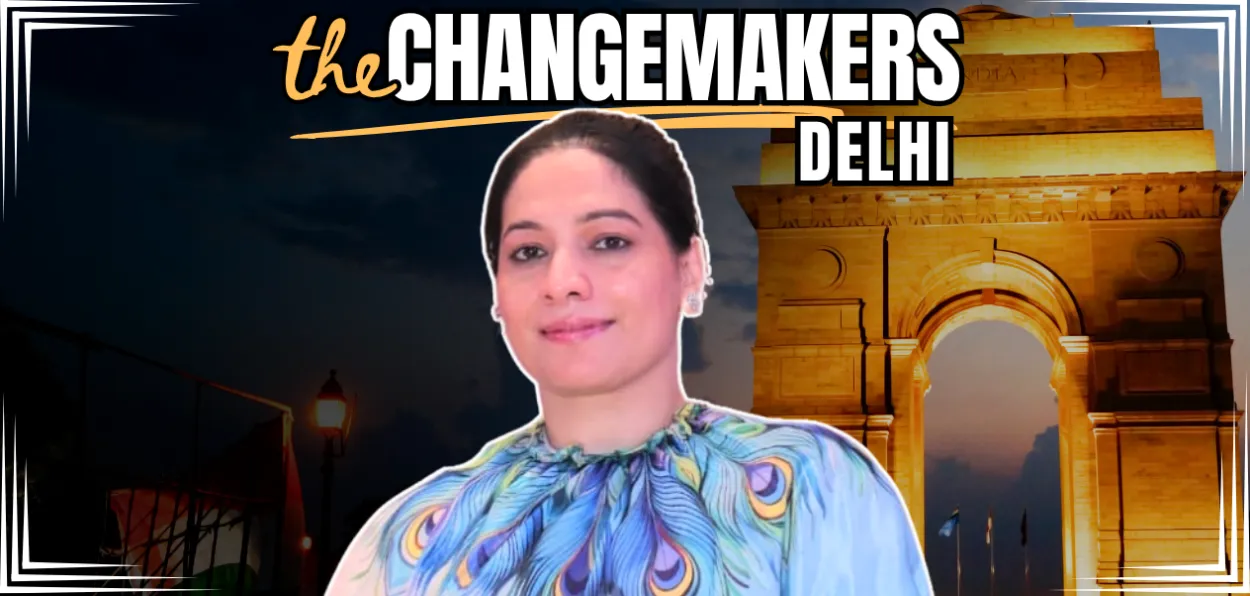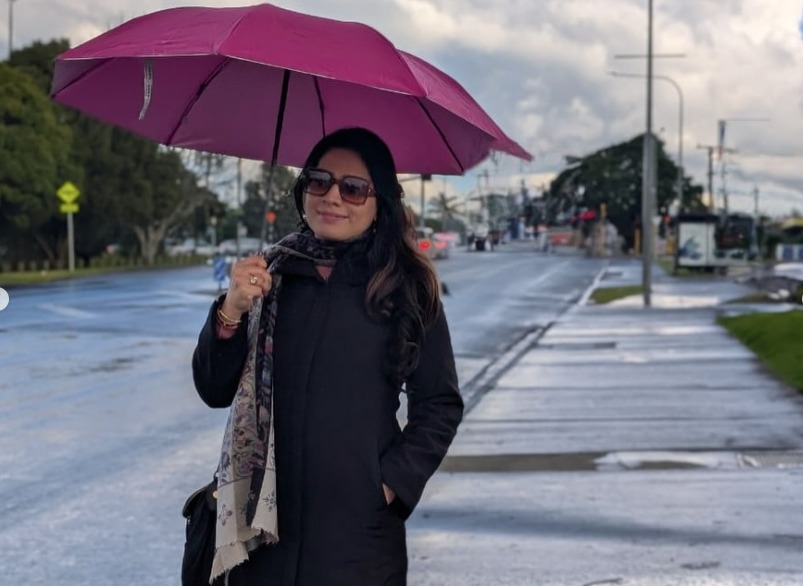
Vidushi Gaur/ New Delhi
In the heart of Delhi, where heritage and modernity coalesce, Dr. Amna Mirza stands tall as a teacher bringing about profound changes in people's mindsets.
A political science professor by profession, she is a changemaker by instinct. Dr. Mirza’s journey defies the rigidity often associated with academia. She wears many hats with ease: educator, social worker, cultural custodian, and above all, a proud Delhiite who believes in nurturing the soul of a nation through its people and plurality.
Dr. Amna Mirza is not just an academic; she is a mentor who views education as a tool of transformation. Her lectures transcend textbooks as she sprinkles references from Urdu poetry, Indian history, and contemporary realities into these.

Dr. Mirza teaches at the University of Delhi, an institution she reveres not just for its academic standing but for its role in shaping democratic discourse in India.
Her classroom is as inclusive as her ideology. “Education is not just about degrees. It's about dignity,” she says, echoing the concerns of students who come from marginalised and underrepresented backgrounds. She takes particular pride in mentoring first-generation learners.
A firm believer in effort over entitlement, she often reminds her students: “Do tarah se pehchaan banti hai — chappal ghisne se ya talwe chaatne se. (There are two ways to become successful – one is through working hard and the other is by becoming a boot-licker.” For her, there is no respectful alternative to hard work, and she has lived by that belief through years of academic discipline and community engagement.
Dr. Mirza often quotes Ghalib or Kabir with equal reverence.She was raised in a household steeped in literary traditions and secular values. Mirza believes language and culture are the most powerful tools for sustaining harmony. Her academic work often intersects with her cultural activism. She has written and spoken extensively on Ganga-Jamuni Tehzeeb—the centuries-old syncretic culture that unites Hindus and Muslims in northern India, especially in cities like Delhi and Lucknow.
“In Delhi, you find a Sufi dargah next to a Hindu temple. That’s not just geography—it’s shared history,” she remarks with quiet pride. Whether it’s organising mushairas, interfaith dialogues, or cultural heritage walks in Old Delhi, Dr. Mirza is deeply invested in keeping that composite culture alive in an increasingly polarised world.
Beyond academia, her voice has guided many through personal and societal storms. She believes in perseverance through uncertainty, often saying, “No storm is permanent. Keep walking and always look for change to move forward.” It is this inner resilience that defines both her scholarship and her social outreach.
During the COVID-19 lockdown, when much of the world stood still, Dr. Mirza mobilised volunteer groups for food distribution, medical aid, and online education support. Her initiative, Books for All—a grassroots project that creates small libraries in underserved neighbourhoods—continues to serve as a quiet revolution in communities across Delhi.
.jpeg)
Dr. Mirza is also a frequent contributor to panel discussions on gender, minority rights, and education reform, where her interventions are known for being both thoughtful and firm. Her activism doesn’t seek the spotlight—it flows naturally from her belief that intellectuals must serve as moral compasses in society.
Her favourite line, she shares, is from poet Sohan Lal Dwivedi:
“Lehron se darkar nauka paar nahi hoti,
Koshish karne walon ki kabhi haar nahi hoti.”
These lines echo deeply in her life—where challenges are not feared, but embraced as calls for greater effort and deeper compassion.
Though well-travelled, Dr. Amna Mirza remains deeply rooted in Delhi, a city she calls “a living archive of India’s composite culture.” Her love for Delhi is reflected not just in her academic writings, but also in her everyday life—whether it’s her walks through Lodhi Garden, her support for local artisans at Dilli Haat, or her involvement in neighbourhood literacy drives.
“Delhi has taught me to listen to the footsteps of history while moving toward the future,” she says. Indeed, these days, when the capital often finds itself at the crossroads of identity and ideology, voices like hers offer clarity, compassion, and hope.
Her journey is a reminder that the role of an academic need not end at the podium or in the pages of a journal. It can extend into the streets of a city, the struggles of its people, and the soul of a culture.
ALSO READ: Artist Asgar Ali’s Kalabhumi Art Institute has set world records
In Dr. Amna Mirza, Delhi finds not just a scholar, but a citizen of conscience—gently leading by example, with books in one hand and hope in the other.
